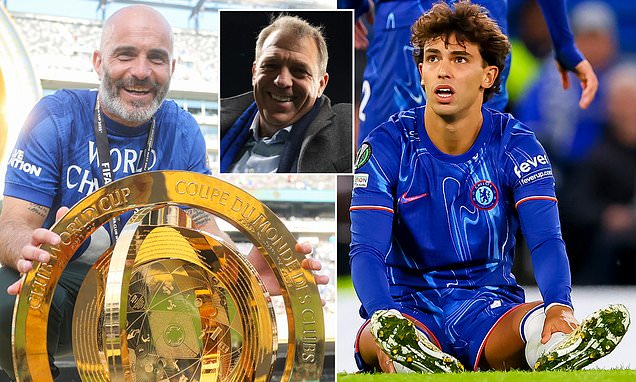In the high-stakes world of elite football, where financial fair play regulations increasingly constrain spending, Chelsea Football Club appears to operate under a unique set of circumstances, seemingly immune to the fiscal pressures affecting many rivals. This apparent immunity stems from a curious and increasingly scrutinized relationship with Saudi Arabian football clubs and investment entities, allowing the London giants an unusual degree of flexibility in their transfer dealings.
While other Premier League teams meticulously balance their books to avoid breaches of profit and sustainability rules, Chelsea’s transfer strategy often involves what critics term ‘confetti spending.’ This approach sees significant outlays on players, with seemingly little jeopardy if acquisitions do not pan out. The underlying reason, as observers point out, is the ready availability of Saudi benefactors willing to acquire players deemed surplus to requirements or, in some cases, outright transfer errors.
Central to this dynamic is Saudi Arabia’s Public Investment Fund (PIF), the sovereign wealth fund that not only owns Newcastle United but also holds a significant stake in Clearlake Capital, part of Chelsea’s ownership consortium. Despite the Premier League accepting assurances from Todd Boehly regarding PIF’s non-involvement in Chelsea’s 2022 takeover, rivals have voiced growing concerns over potential conflicts of interest and the Saudi Pro League’s distinct interest in Chelsea’s player roster.
A pattern has emerged, with a succession of players who have struggled at Stamford Bridge finding a new home in the Saudi Pro League. A notable example is Portuguese forward João Félix, who, after a high-profile loan and subsequent permanent signing that quickly dissolved, was reportedly eyed by Saudi clubs. Similarly, teenage winger Angelo Gabriel, acquired for a significant sum, never featured for Chelsea but was later sold to Saudi interests for a profit.
This convenient outflow extends to established stars as well. Midfield powerhouse N’Golo Kanté, formidable defender Kalidou Koulibaly, and goalkeeper Edouard Mendy, all prominent figures in Chelsea’s recent history, transitioned to Saudi clubs. These high-value departures provided significant financial relief to Chelsea, leading some rival clubs to characterize the Saudi league’s role as a ‘get out of financial fair play jail-free card.’
However, this seemingly smooth transfer conveyor belt isn’t without its hitches. The case of England international Raheem Sterling highlights the complexities. Despite a massive contract offered by Chelsea, the club reportedly sought to offload him to Saudi Arabia when manager Enzo Maresca deemed him surplus. Sterling, however, resisted the move, preferring to remain in England and forcing Chelsea to pursue a loan deal with a rival club to reduce his substantial salary.
Chelsea maintains that the interest from Saudi clubs in their players is purely transactional, driven by the London club’s global appeal and popularity within the Middle East. Yet, the persistent flow of players from Stamford Bridge to Riyadh continues to fuel speculation and raise questions within the football community about the true nature of these financial arrangements and their implications for competitive balance and regulatory oversight in the Premier League.






Leave a Reply